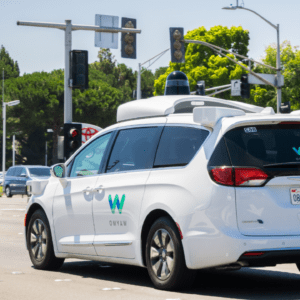The statistics come from the latest report from the 2021 Lloyd’s Register Foundation World Risk Poll, powered by Gallup, titled Digital World: Perceptions of risk from AI and misuse of personal data. The data, which features responses from over 125,000 people in 121 countries, also demonstrates even higher levels of mistrust with companies – almost three quarters of respondents (74%) said they were ‘very’ or ‘somewhat’ worried they would use their personal data without their permission.
Dr Sarah Cumbers, Director of Evidence and Insight at Lloyd’s Register Foundation, said: “In the digital era, data is an extremely important commodity for businesses and governments alike. Over the last decade, the value of personal information online has skyrocketed – prompting lawmakers around the world to protect it with policies such as the General Data Protection Regulation (GDPR) in the EU. Yet, our report has shown existing measures are far from enough for internet users to feel their data is safe online. Moving forward, this will be a crucial issue for governments to address, especially as vital services are increasingly being digitalised.”
The report also highlights that personal and demographic factors can affect people’s attitudes towards data – especially if they’re part of a marginalised group or have experienced discrimination based on their gender, ethnicity, religion, disability or other factors.
For example, 42% of internet users who haven’t experienced any form of discrimination said they were ‘very worried’ about their personal information being stolen. This figure rises to more than half (54%) among people who have experienced two forms or more of discrimination. Similarly, the proportion ‘very worried’ about their personal information being used by their government rises from 34% of those who haven’t experienced discrimination to nearly half (48%) of those who have experienced two or more forms.
Carlos Iglesias, Senior Research Manager at World Wide Web Foundation, commented: “The online world mirrors offline harms and inequalities, and, as such, marginalized groups are more acutely affected by issues related to safety and privacy. Everyone – governments, companies and individual citizens – needs to take proactive steps toward greater and more inclusive privacy and security online, so that the full potential of the web can be realised and enjoyed by all who use it.”
The report also reveals income and age play an important role in people’s attitudes towards personal data. More than half (56%) of internet users worldwide who are finding it ‘very difficult’ to get by on their current income said they are ‘very worried’ about their personal information being stolen online, compared to just over a third (35%) of those who are ‘living comfortably’. Meanwhile, younger people were most likely to express concerns: almost half of internet users under 50 (46%) said they were very worried about their personal information being stolen versus about one-third (32%) of those over 65. This highlights the potentially devasting effects data theft could have for those with lower income levels, including losing access to benefits or vital government services.
Dr Cumbers concluded: “Overall, these findings suggest that globally, the use of personal data may be seen by vulnerable groups as a means of reinforcing and amplifying existing biases and discriminatory power structures. Yet, digital technologies offer many social and economic opportunities, which marginalised groups may miss out on due to the perceived – whether real or not – risks to their personal data. Therefore, any strategies designed to make online spaces safer and more inclusive must also engage and build trust with those most wary of them.”






